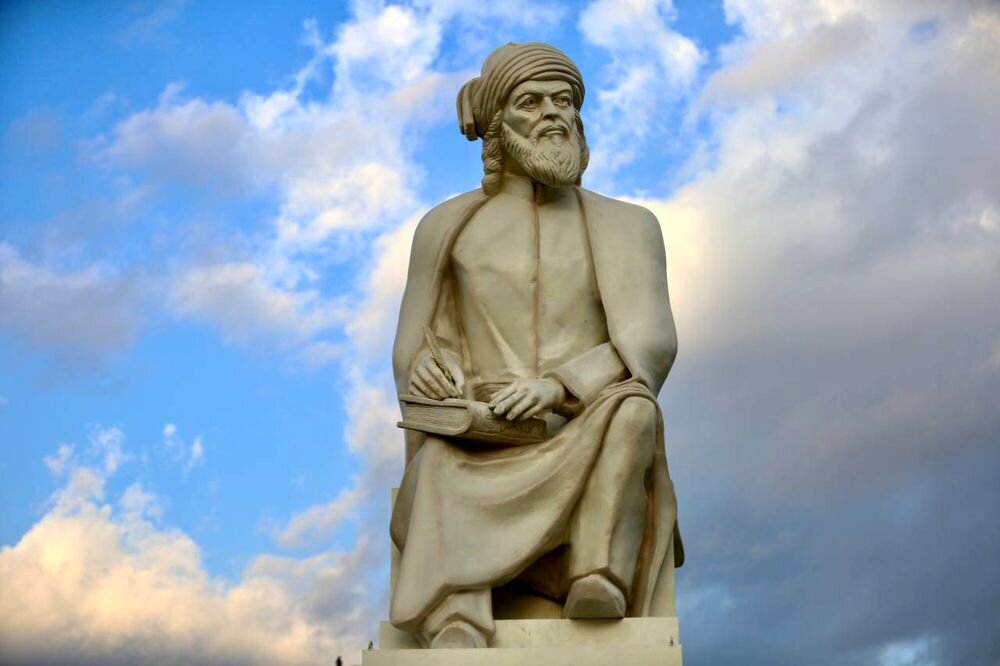TEHRAN-At a ceremony attended by numerous senior cultural and municipal officials, as well as ambassadors from Tajikistan, Turkey, and Kazakhstan, and India’s cultural attaché in Iran, a statue of the Persian poet and mystic Molana Jalal ad-Din Rumi, created by sculptor Master Nader Qashqai, was unveiled in Mohammadiyeh Square in Tehran.
Mahmoud Shalouei, President of the Iranian Society of Cultural Works and Luminaries, stated in his speech that the Society has focused significantly on the construction and restoration of tombs and buildings related to Iranian and Persian-speaking luminaries since its inception, Honaronline reported.
“In recent years, with the Society's efforts, support from the Ministry of Culture and Islamic Guidance, and backing from the Planning and Budget Organization, the initiative to refurbish monuments and create statues of these notable figures for urban spaces has been reintroduced,” he noted.
The Cultural Advisor to the Minister added that last year, the Society commissioned an impressive statue of the scholar Nezami, designed by artist Nader Qashqai, which was installed in Vanak Square, Tehran, during Nezami’s commemoration week.
Shalouei emphasized that the Ministry of Culture and Islamic Guidance, along with the Planning and Budget Organization, has provided significant financial support for the creation and installation of statues honoring Iranian cultural figures. The City Council and Tehran Municipality, with assistance from the Beautification Organization and District Twelve’s municipality, also contributed extensively to making this project a reality.
He concluded by announcing that, in the near future, in collaboration with Turkish cultural officials, grand ceremonies will be held in Iran and Turkey, specifically in the cities of Konya and Khoy, to honor Shams Tabrizi and Rumi.
During another part of the ceremony, Hamid Pourmohammadi, head of the National Planning and Budget Organization, expressed appreciation for the initiative by reciting poetry from Molana and honoring the memory of this wise mystic.
Later in the ceremony, Mehdi Chamran, Chairman of the Tehran City Council, noted that installing and unveiling Rumi’s statue in one of Tehran's bustling squares will have a notable cultural and aesthetic impact on the area, as the previous name and sculpture in the square did not offer a suitable or desirable appearance.
“With the support and cooperation of the Iranian Society of Cultural Works and Luminaries, the creation and unveiling of statues of prominent figures in major squares and streets of the capital will proceed more rapidly, fostering a deeper connection between the people of Tehran and the illustrious figures of Iran-Islamic thought and culture.
Molana Jalal ad-Din Rumi (1207 to 1273) is one of the most widely recognized and celebrated poets in the world. His works have been translated into multiple languages and continue to inspire readers globally. Rumi's spiritual teachings and poetry have deeply influenced the entire Islamic world.
Rumi was born in present-day Afghanistan and later migrated to Konya, Turkey, where he lived most of his life and wrote the majority of his works. As a result, the city of Konya became a vibrant center of Sufism, an Islamic mystical tradition, and a hub of intellectual and artistic activity.
Rumi's works were written mostly in Persian, but occasionally he also used Turkish, Arabic and Greek in his verse. His Masnavi, composed in Konya, is considered one of the greatest poems of the Persian language.
His influence has transcended national borders and ethnic divisions: Iranians, Afghans, Tajiks, Turks, Kurds, Greeks, Central Asian Muslims, as well as Muslims of the Indian subcontinent have greatly appreciated his spiritual legacy for the past seven centuries. His poetry influenced not only Persian literature, but also the literary traditions of the Ottoman Turkish, Chagatai, Pashto, Kurdish, Urdu, and Bengali languages.
Rumi's works are widely read today in their original language across Greater Iran and the Persian-speaking world. His poems have subsequently been translated into many of the world's languages and transposed into various formats. Rumi has been described as the “most popular poet,” is very popular in Turkey, Azerbaijan and South Asia, and has become the “best selling poet” in the United States.


No comments:
Post a Comment